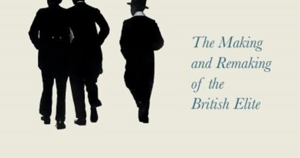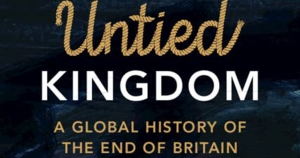Gordon Pentland
Gordon Pentland reviews ‘Born to Rule: The making and remaking of the British elite’ by Aaron Reeves and Sam Friedman
Within the English language ‘elite’ is one of those French loan words comfortable enough in its new habitat to have dropped its accent in many publications (though not this magazine). Adopted substantially following France’s reckoning with its own élites after 1789, it joined other Gallic descriptors of high society such as ‘le bon ton’ and still retains a residual whiff of suspicious foreign origins. Crusading journalist William Cobbett preferred the robust old English term ‘the Thing’ to describe the interlocking networks of social, economic, and political privilege that misgoverned Britain in the aftermath of revolution. Usage of ‘elite’ only soared after World War II, and especially from the 1950s, when cognate terms such as ‘the Establishment’ also became common coin. In its adjectival form in the United Kingdom, as in Australia, ‘elite’ retains some positive connotations. Generally, we are comfortable with the notion of élite athletes, as even the most cursory follower of the recent Olympic Games will have noted. As an adjective applied to other areas of life such as education and politics, or worse still as a noun, it has become a kind of slur.
... (read more)Gordon Pentland reviews 'The Abuse of Power: Confronting injustice in public life' by Theresa May
It takes some considerable effort to remember Theresa May’s time as prime minister. Her two governments ran from the resignation of David Cameron immediately after the political earthquake of the Brexit referendum in 2016, to May’s own tearful resignation in the summer of 2019 as the aftershocks swallowed her minority government. The distending effects of the past three years of UK (and world) politics have already made the May era a kind of historical curiosity. The consequent danger is that we look back to her stint as prime minister as the last gasp of sensible politics avant le déluge.
... (read more)Gordon Pentland reviews 'Untied Kingdom: A global history of the end of Britain' by Stuart Ward
Two of my favourite images in Stuart Ward’s important new book reproduce black-and-white photographs. One captures the life-sized butter sculpture of the prince of Wales and his favourite Canadian horse, the star exhibit of the 1924 Empire Exhibition at Wembley. The other shows a group of protesters in London in 1973 contesting European Economic Community restrictions on imports of Commonwealth cane sugar from the West Indies and Queensland. Most of the faces in the picture are obscured, but the body language of a man to the left of the frame, slumped over his hand-rendered ‘Beat Beet. Keep Cane’ placard, communicates depression and dejection.
... (read more)It is a truism that all politics is performance. Successful leaders are frequently adept in the manipulation and deployment of scripts, props, stages, and costumes. To their credit, British politicians have worked exceedingly hard over the past year and more to explore the full range of theatrical genres. The vaudevillian moral vacuum of Boris Johnson’s government was reprised in recent weeks as Johnson put on a command performance, all wispy blond hair and faux indignation, for the Commons Privileges Committee. The unbelievable farce that ended his time at 10 Downing Street gave way swiftly to the burlesque-cum-tragicomedy of Liz Truss and her chancellor’s calamitous (not to say ironic) ‘mini’ budget. We seem to have arrived, in the efforts of Rishi Sunak and Keir Starmer to out-gravitas one another, at a sustained attempt to revive the long-lost tradition of the morality play.
... (read more)Gordon Pentland reviews 'Scotland: The global history – 1603 to the present' by Murray Pittock
I was sorely tempted to judge this book by its cover. The ‘Scotland’ of the title is large, bold, and confident. The subtitle ‘The Global History 1603 to the Present’ is there in diminuendo, unassuming and easy to miss. This encapsulates the volume’s central tension: how is it possible to write the global history of a single nation? How can the emphasis of the first project on boundaryless movement, circulation, and exchange be made to play nicely with the second genre’s preoccupation with distinctiveness, peculiarities, and place?
... (read more)Gordon Pentland reviews 'Jeremy Bentham and Australia', edited by Tim Causer, Margot Finn, and Philip Schofield, and 'Panopticon versus New South Wales and Other Writings on Australia', edited by Tim Causer and Philip Schofield
In the centenary of Jeremy Bentham’s death in 1932, there was widespread and somewhat macabre interest in the Australian press in the commemorative dinner at University College London, at which Bentham’s famous auto-icon made an appearance as the guest of honour. Some of the more serious commentary sought to educate readers about this ‘human bridge between the thought of the eighteenth and nineteenth centuries’ and more especially about his relationship to Australia. New South Wales was established as an experimental penal colony just as Bentham (1748–1832) was reaching the height of his powers, and could hardly fail to play a dynamic and critical role within his thinking on crime and punishment. Given the origins and nature of the colonies that became Australia’s states, they could not but bear some imprint from the house-philosopher of the Victorian British state, making Bentham, in Judith Brett’s assessment, Australia’s ‘foundational thinker’.
... (read more)






